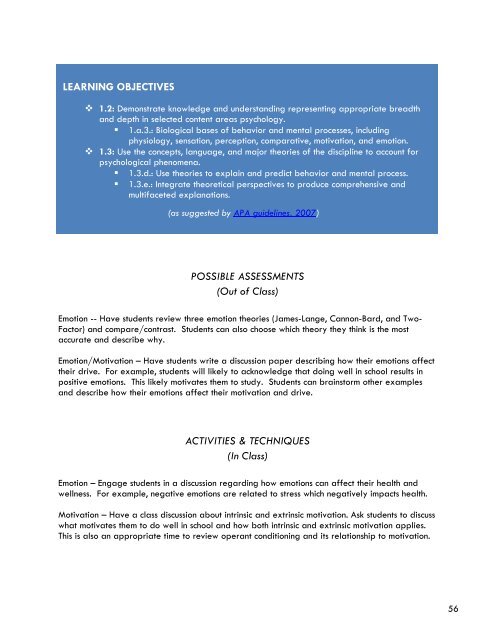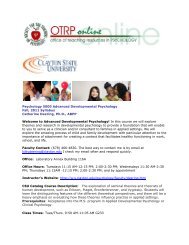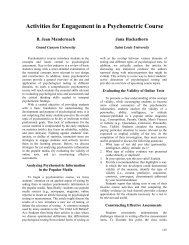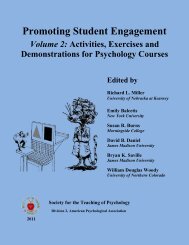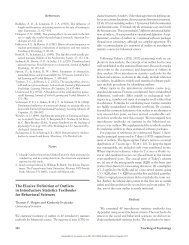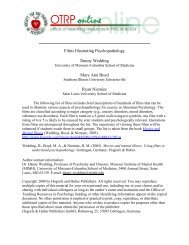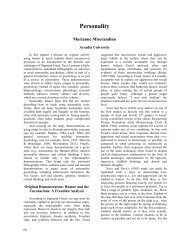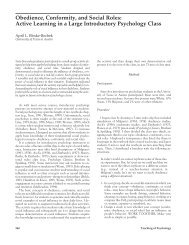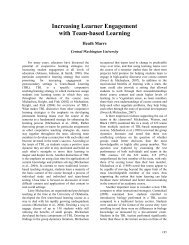INTRODUCTORY PSYCHOLOGY TEACHING PRIMER Early Career ...
INTRODUCTORY PSYCHOLOGY TEACHING PRIMER Early Career ...
INTRODUCTORY PSYCHOLOGY TEACHING PRIMER Early Career ...
You also want an ePaper? Increase the reach of your titles
YUMPU automatically turns print PDFs into web optimized ePapers that Google loves.
LEARNING OBJECTIVES<br />
1.2: Demonstrate knowledge and understanding representing appropriate breadth<br />
and depth in selected content areas psychology.<br />
1.a.3.: Biological bases of behavior and mental processes, including<br />
physiology, sensation, perception, comparative, motivation, and emotion.<br />
1.3: Use the concepts, language, and major theories of the discipline to account for<br />
psychological phenomena.<br />
1.3.d.: Use theories to explain and predict behavior and mental process.<br />
1.3.e.: Integrate theoretical perspectives to produce comprehensive and<br />
multifaceted explanations.<br />
(as suggested by APA guidelines, 2007)<br />
POSSIBLE ASSESSMENTS<br />
(Out of Class)<br />
Emotion -- Have students review three emotion theories (James-Lange, Cannon-Bard, and Two-<br />
Factor) and compare/contrast. Students can also choose which theory they think is the most<br />
accurate and describe why.<br />
Emotion/Motivation – Have students write a discussion paper describing how their emotions affect<br />
their drive. For example, students will likely to acknowledge that doing well in school results in<br />
positive emotions. This likely motivates them to study. Students can brainstorm other examples<br />
and describe how their emotions affect their motivation and drive.<br />
ACTIVITIES & TECHNIQUES<br />
(In Class)<br />
Emotion – Engage students in a discussion regarding how emotions can affect their health and<br />
wellness. For example, negative emotions are related to stress which negatively impacts health.<br />
Motivation – Have a class discussion about intrinsic and extrinsic motivation. Ask students to discuss<br />
what motivates them to do well in school and how both intrinsic and extrinsic motivation applies.<br />
This is also an appropriate time to review operant conditioning and its relationship to motivation.<br />
56


